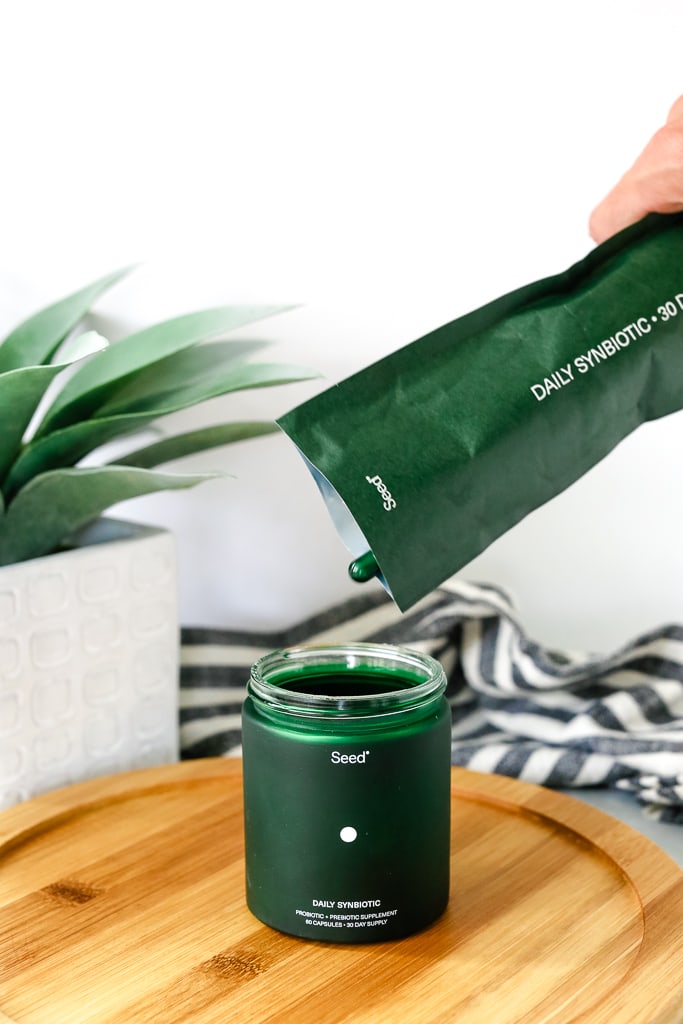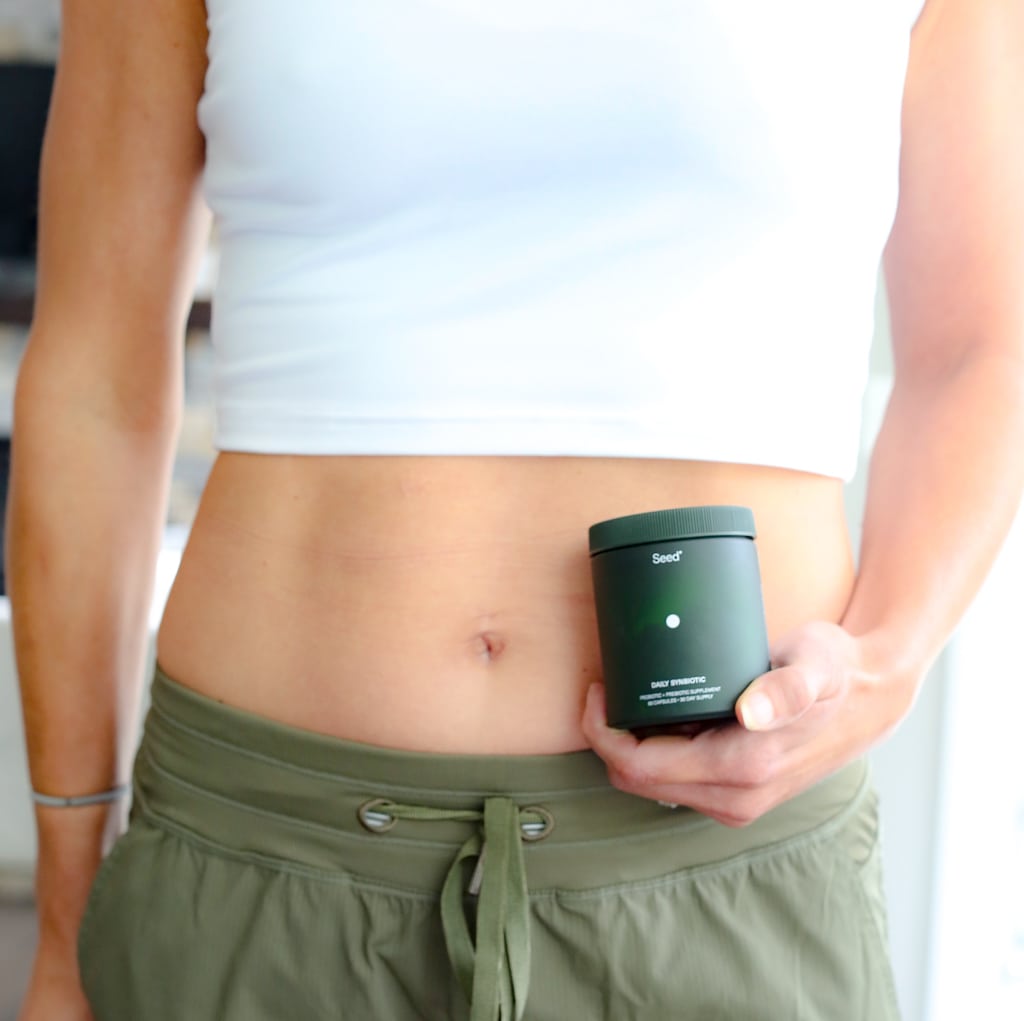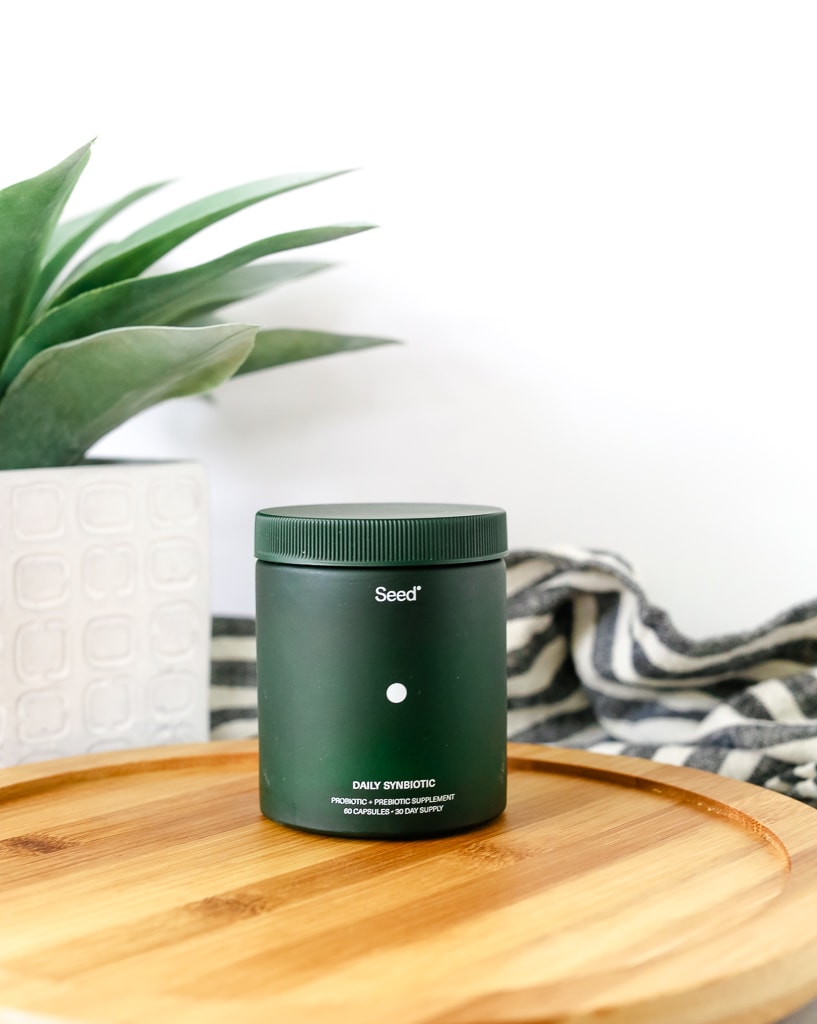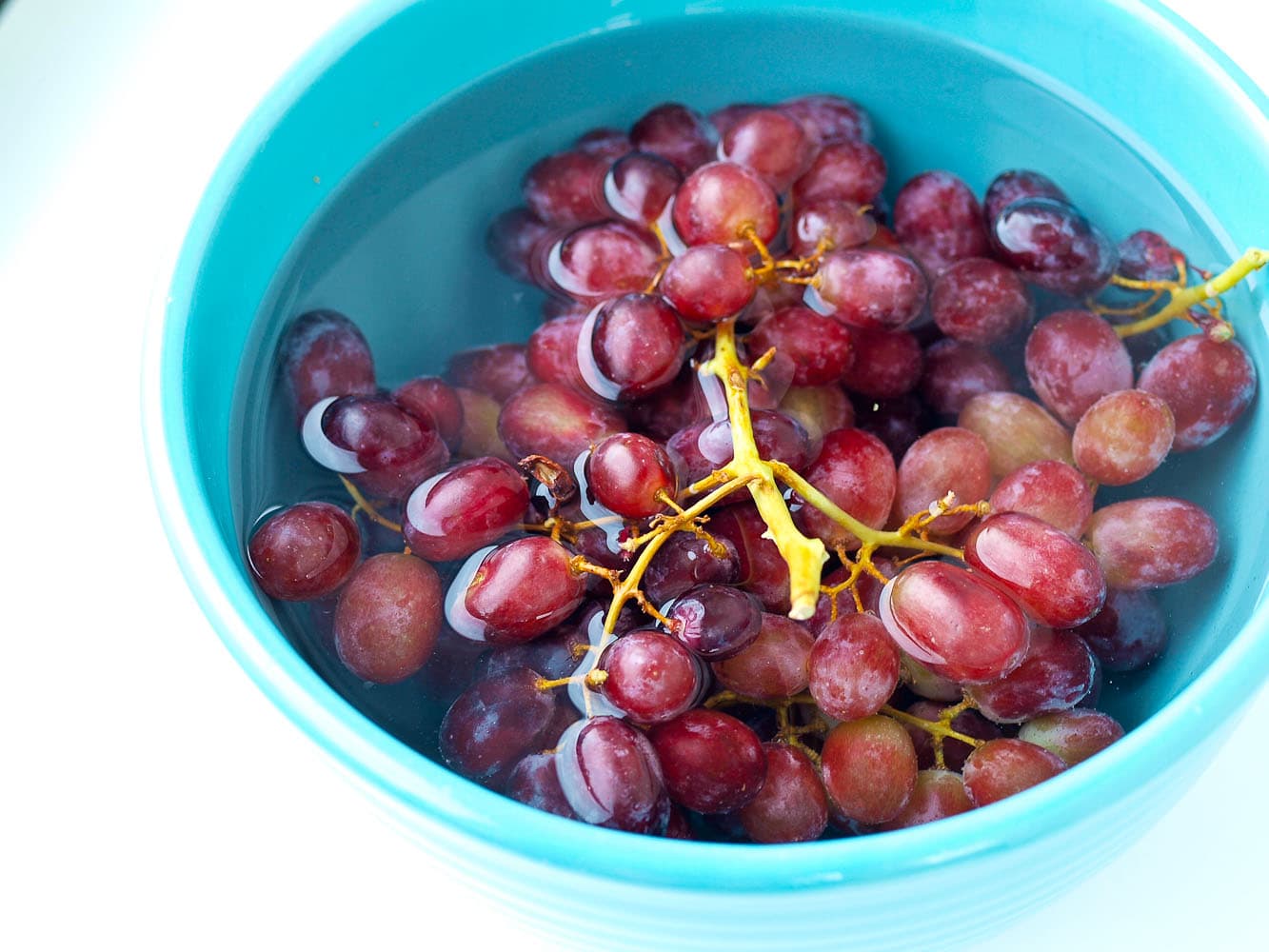What are probiotics and how can they help me? Read on to answer these questions and find out why I recently switched brands!
Please note that links to products are affiliate links. This means, at no extra cost to you, if you purchase through the links I will receive a percentage of the sale. I only share products I believe in and use myself. Thank you for supporting Happy Healthy Mama.
I recently changed to a new brand of probiotic supplements and I’d like to share why I made the switch. Healthy living is a journey and I’m constantly growing and learning and I hope that’s part of your journey, as well. What I’ve recently learned about probiotics and how they work is what prompted me to switch brands to Seed.
I’ve always been very transparent about how I support using supplements to fill in the nutritional gaps that may happen, even to those with the best of intentions and eating whole-foods rich diets. There are some things that are impossible to achieve through diet alone, and one of those is nurturing your gut health with probiotics.
I have recommended probiotic supplements for gut health* for years. It’s something I wish I would have known more about during my pregnancies and especially when my son, Luke, experienced multiple protein intolerances as a breastfeeding infant. I’ve learned over the years what a profound impact gut health can have on your systematic health*.
It turns out, until recently, I didn’t have a full understanding of probiotics and exactly how they work. Just because a product is labeled “probiotic” doesn’t mean much these days, unfortunately, and there’s a lot to consider if you want a probiotic supplement that is beneficial.
What are Probiotics?
Let’s start with defining what probiotics actually are. It’s a simple definition.
Probiotics are live microorganisms that, when administered in adequate amounts, confer a health benefit on the host.
A key term here is live. For purposes of this definition, live means it can survive. So the live bacteria you’re taking needs to survive the harsh trip from your mouth, through your digestive system, and into your colon.
In adequate amounts is important because appropriate doses have been studied in a clinical setting to have a benefit. You need the right amount.
The last part of the definition states that in order for a bacteria to be called a probiotic, it must confer a health benefit on the host. There are specific strains of bacteria that have been studied to cause a beneficial change in the body. Not all bacteria are created equally.
What Health Benefits Can Probiotics Give Me?
Now that we know in order for a probiotic to fit its definition it has to confer a health benefit to the host (that’s us!), what exactly are those health benefits?
Probiotics have been studied extensively in recent years, and found to have systematic health benefits. A lot of people believe it’s just about your digestion, but it goes beyond that. Probiotics can deliver core benefits to the gastrointestinal system, which influences systemic health*. Here’s a look at some health benefits probiotics can give you.
Probiotics can:
-Support gastrointestinal health.*
-Help maintain healthy gut barrier function and integrity.*
-Support healthy immunological responses in the gastrointestinal tract.*
-Promote heart health.*
-Help maintain blood cholesterol levels already in the normal range.*
-Promote healthy skin.*
A healthy gut is more complex than previously believed and more and more is being learned every day about how it impacts our overall health.
Why I Switched to Seed
I first learned about Seed through another blogger who wrote a huge probiotic report and listed Seed as one of three recommended brands. In my own research, I found a few key differences in Seed when comparing to other brands that compelled me to switch brands.
In full disclosure, I did receive a supply of Seed’s Symbiotic product for free. I will not receive a recurring subscription of their product for free, however, and that is something I will pay for on my own because I’m so impressed with this product and company.
In order to become an affiliate and promote Seed, I had to pass a test. They provide a course, Seed University, that anyone who wants to promote their product as an affiliate must take and then pass the associated test. Never in my 10 years of blogging have I been required to pass a test in order to promote a product. Very impressive!
One important difference you’ll find in Seed is their dedication to making sure their product can fit the above definition of a probiotic. Their main goal is to create a probiotic that has live microorganisms that can survive in our bodies all the way from our mouth to our colon, in the amount studied to be effective, and strains that are proven to provide health benefit. This isn’t easy and many probiotic supplements can’t claim all three, or even one, of these.
Here’s what you’ll find with Seed:
-Their Daily Synbiotic formulation contains prebiotics AND probiotics. Probiotics don’t work without prebiotics and you can’t be sure you’re getting the right amounts through diet alone. Including prebiotics in a supplement formulation is crucial.
-Clinically-tested, naturally-occurring strains not found in yogurt or fermented food or drink.
-Their formulation is vegan, gluten-free, preservative -free, and dairy-free.
-They have a 2-in-1 nested capsule technology, designed so the probiotics survive the trip through your digestive system! Probiotics are most effective when they make it to your colon alive. This is rare with most probiotics and Seed is committed to making sure it happens. Bonus: no synthetic or chemical coating and no refrigeration required!
-Free of excipients, binders, and agents.
-Seed adheres to the highest global regulatory standards—EFSA (Europe) and FOSHU (Japan)—and rigorously test beyond what’s required. You just don’t find that with any other brand.
Another aspect of Seed that I appreciate is their commitment to green packaging and sustainability. 
When you start with Seed, your first shipment is your welcome kit. This will include your products in a bio-based tray made of renewable ingredients—starch, natural fibers, and water, which, by the way, is also produced energy-efficiently. It’s fully recyclable and home compostable. Even the shipping box is constructed from ecological paper made from algae.
The Daily Synbiotic product comes in a glass jar the first month. You also get a vial made of glass for easy travel.
After that, you’ll receive your probiotics in a home compostable bio-based pouch for refilling your original jar. I love this!
I’m a huge fan of Seed and am happy to share this brand with you. Seed has agreed to give Happy Healthy Mama readers 15% off their first month supply of Daily Synbiotic. Use code HAPPYHEALTHYMAMA to claim this special offer.
CLICK HERE TO TRY SEED FOR 15% OFF USING THE CODE HAPPYHEALTHYMAMA
*These statements have not been evaluated by the Food and Drug Administration. This product is not intended to diagnose, treat, cure or prevent any disease.
Links to products in this post are affiliate links. That means that if you purchase through these links, at no extra cost to you, I will receive a percentage of the sale. Thank you for supporting Happy Healthy Mama!




Very interesting article! I did not understand at all before what these prebiotics are and why they are needed, until my doctor prescribed them to me, since I had some heart problems. But now everything seems to be much better at understanding them, and your post helped me even more. I have heard about Seed before and have heard positive reviews. Maybe soon I will also switch to them, as they are vegan, and I recently decided to be a vegan. Thanks for the useful information!
I find probiotics really good for the digestive system, especially the kids and the elderly. however, I prefer products with natural angles rather than high-tech products. so i have been here and read your post!
thank you for sharing!
my kids love probiotics. It helps them with their digestion.
hi Maryea, thanks for put together a great resource, However, I think if we don’t regularly consume any fermented foods, a probiotic supplement may be a good idea. But it’s also true choosing the correct strain is important.
Thank you for your blog Maryea! I have learned a lot of stuff browsing through. Can you tell me please if those probiotics for kids enough and don’t require any multivitamins? I just don’t want to over do it. Thank you.
Anna.
We do multivitamins and probiotics! 🙂
Do you give your children a multivitamin also? If so, what brand? I’m searching for one for my daughter and myself. Thanks!
Yes! We use MegaFood brand. How old is your daughter? The Kids Daily Multi is for ages 5 and up.
great advice.
Here is how to choose the best probiotics and why you should always buy only the best products http://skinnygirlsguide.com/how-to-choose-the-best-probiotics/
great post! probiotics are great for healing leaky gut syndrome
http://www.howtohealleakygut.com/blog/
Thank you for the supplement suggestions. Call me old school, but I thought you could only get more of them through foods. You’ve just opened up a whole new world to me. Thanks again.
Aside from the number of bacteria present in the supplement, you also have to check the number of different strains of bacteria. There are probiotics that have only one strain while others have 15 or more different strains.
I’ve had lots of gut issues over the past 11 years. It’s interesting though, I’ve heard of people who’ve taken probiotic supplements and it actually made their symptoms worse. I think people need to be careful in finding one that works for them and not ignoring signs of your body not liking it. I can’t eat yogurt/dairy due to food sensitivities so kombucha and sauerkraut is a better option for me. 🙂 I completely agree with you though, our health begins in our gut!
That’s interesting. I wonder if it makes their symptoms worse, but if they kept it up it would then it would get better once their bacteria is balanced? Kind of like a things have to get worse before they get better situation?
We love probiotics, in foods and as supplements. They make us poop and keep us healthy. I just talked about the relationship between probiotics and regular bowel movements on my blog. This is one of my favourite topics! Thank you for the article, Maryea.
You’re welcome! 🙂
We love probiotics, in foods and as supplements. They make us poop and keep us healthy.